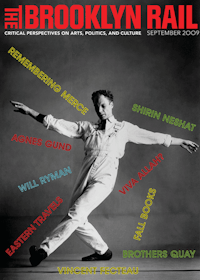Express
Something About Writing Like Pinter Or George W. Bush
"The search for truth can never stop. It cannot be adjourned, it cannot be postponed. It has to be faced, right there, on the spot.”
—Harold Pinter in his Nobel Lecture
“Bring
them
on.”
—President George W. Bush
1.
MAKING COFFEE
AND READING CHEKHOV
The Booker Prize winner is talking to one of the panelists about Facebook when I return with the coffee. The green room is swelling with actors and Pinter scholars going over notes, making small talk, getting wired with microphones. A playwright I admire is applying makeup in a Broadway mirror. I’m here as a volunteer, one of the hundred or so recruited to staff events like this around the city during the annual PEN World Voices Festival. Today is the Pinter Tribute at the CUNY Grad Center: ten hours of films, discussions, and a performance of The Dumb Waiter by two actors I recognize vaguely in the corner. I open a fresh tin of Chock Full o’Nuts and replace the paper cone in the Mr. Coffee. The playwright I admire walks over and places a hand on my shoulder; she is a friendly version of her author photo. How long, do you think? she asks, gesturing to the tin of coffee in my hand. Think it will be done by the next panel? Her fingers are slim; they rest near my collar. But then the Booker Prize winner mentions her name, and she’s gone before I can think of what to say.
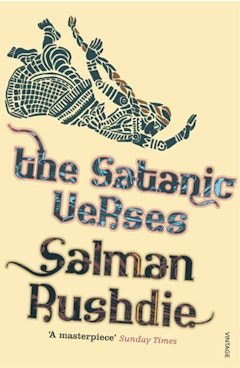
I volunteered in order to be around these people, to be influenced. Most of the volunteers, like me, come from the city’s varied MFA writing programs. And most of the panelists and authors we meet at the festival events teach in MFA programs. In a sense, we students have volunteered to meet each other’s teachers. A year ago, in this same green room, I met a short story writer whose latest collection had blown me away. We shared Styrofoam cups of coffee during the intermission before his “conversation” with an editor from a popular magazine. We talked about Raymond Carver and Chekhov and I felt I held my own; I know Raymond Carver the way every 20-something writer from Seattle knows him (the same way we know Pearl Jam and Nirvana—it’s a rite of passage during puberty). But as for Chekhov, I’ve only read the plays. And part of the inferiority complex of young writers is not having worked all the way through the canon. How can one write a good novel without having read Chekhov? I might ask myself, and it seems a valid question. So I read Chekhov, because doing so makes me feel that much closer to being a real writer.
After our coffee and his “conversation,” I helped clean up the auditorium and went downtown to an after party in SoHo, hoping to reconnect. When I couldn’t find him, I spent the evening getting blackout drunk with another volunteer on the roof of the building instead, cowardly bashing the “airport books” of the famous novelists on the floor below. To greatness! we toasted. To glory and Ginsberg! I woke the next afternoon on the dirty hardwood floor of my studio apartment, having made it to the toilet but not back to bed. My pants were around my ankles; my mouth felt full of gym socks. I realized I’d spent over a hundred dollars at an overpriced bar with one of the novelists I’d been bashing. I crawled to the toilet and peered in. I felt terrible but satisfied. I felt like a writer.
The green room buzzing comes to a halt when a childhood friend of Pinter’s announces from the door that the brief intermission is over. I look at the schedule; it’s time for the Booker Prize winner to introduce a video screening of Pinter’s Nobel Lecture. While not technically the afternoon’s host, everyone, even the Booker Prize winner, defers to the Pinter-friend and actor as leader, for he knew the great man best. The writers and actors and academics follow in single-file, scurrying out the door to their assigned front-row seats. When the room is empty I pour a cup of coffee for myself and leave, going the other direction out the door and taking the long way around to the back of the auditorium. I sit in one of the last rows, my legs draped over the seat back before me. The rooftop volunteer from last year slips into a seat to my left. He asks if I’m going to the after-party this evening. I don’t know about you, but I’m going to need to get seriously fucked up after this, he tells me. I sip the coffee and watch the back of the heads of an applauding audience. I smile to myself at the few whooping cheers that occur as the Booker Prize winner walks on stage. Me too, I answer. I watch the Booker Prize winner approach the podium and take a folded piece of paper from his breast pocket. He adjusts his reading glasses. Here I am, there he is. A sad relationship.
2.
VOLUNTARY IGNORANCE
As young writers it’s easy to assume that more accomplished writers know something we don’t. It’s comforting to let ourselves believe they’ve grasped some “truth” we’ve yet to be able to wrap our heads around. Because assuming an ignorance gives us a way out, or a scapegoat for our unsuccess.
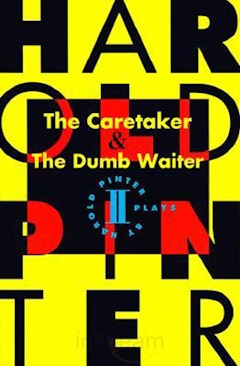
But whether or not this “truth” really exists, whether or not the people sitting on the stage or standing at the podium know some secret we volunteers don’t, doesn’t matter. What matters is that we want to assume a voluntary ignorance—we want to assume that we aren’t as talented, that there’s some glass wall separating us from the stage. Because whatever it is that separates Us from Them, that’s the something we should blame for our labored-over short stories not being bound in hardcover and displayed in the front windows of a Barnes and Noble. That’s the invisible power that keeps our books off the brightly-colored, heavily-trafficked tables at the Hudson Bookstores in JFK and LaGuardia. It’s not something inside us, no. It’s a power we can’t control, an evil demon, and that’s why so many of our novels and short stories go—not just unpublished—but never even submitted.
3.
WRITING LIKE
GEORGE W. BUSH
The Booker Prize winner approaches the podium and the audience applause dies down. He unfolds a sheet of paper from his breast pocket and begins to read. He tells us about his friendship with Pinter, of the time years ago when he had written a good book and the Ayatollah declared him an enemy to Islam because of it. A fatwa was issued, and the Booker Prize winner went into hiding. During the first months, he tells us, he had to call Pinter and ask him to take his place at a speaking engagement at Oxford, where the prize-winner’s safety from would-be Jihadists couldn’t be guaranteed. He agreed without hesitation, the bespeckled writer at the podium tells us, reading from his crumpled sheets. With no worry for his own safety, and willing to do me this favor not only as a great writer, but as a great friend. Listening to him read, I feel something tighten inside me. Then the lights dim and a projector screen flashes full blue before cutting to Pinter’s dying face, enormous on the wall, wrinkled and almost monstrous. He sits with grandiose posture under a blanket, in a wheelchair like a kingly throne. His voice echoes in a deep, gravelly British, a voice that reminds me more of Lear than The Birthday Party: “I’m sorry I can’t be in Stockholm,” he begins.
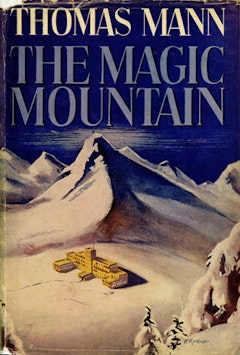
His lecture, “Art, Truth & Politics,” was recorded on film in London; his poor health prevented him from traveling to the official ceremony. From his royal position before the camera he wastes little time before addressing the current international climate and our world leaders, of whom he has been an outspoken critic:
“The majority of politicians, on the evidence available to us, are interested not in truth but in power and in the maintenance of that power. To maintain that power it is essential that people remain in ignorance, that they live in ignorance of the truth, even the truth of their own lives.”
The Booker Prize winner’s introduction, told as well as it was, with so much emotion, made me feel something, even if the writer himself did not. As he spoke, I let myself be carried by his words. Sitting in my chair, watching Pinter in his chair, letting this other great writer carry me through the finely tuned arguments and anecdotes of his lecture, I am abruptly thrown out of the narrative by a realization. Pinter tells us that when we let politicians maintain their power, “what surrounds us is a vast tapestry of lies.” How is this not the same as writing fiction? How is an author’s power over a reader any different than a crooked politician’s power over a populace? Climax, suspense, drama conflict—these are tools to keep the reader ignorant to what happens next—and through succumbing to this other voluntary ignorance, through a suspension of disbelief when watching a play or television or reading a book, the reader experiences a pleasure not wholly unlike the one I feel as a young writer when I blame my lack of success not on myself, but rather on some power acting upon me. Some power of which I am—even if I don’t realize it—voluntarily ignorant.
We let ourselves be led along because it feels good. As readers and appreciators of art, this is a grand thing, a necessary action on the part of an audience. We should look at a Rothko and feel ourselves sinking, and we should watch Lear and feel ourselves start to cry. But as citizens (and writers) it is a terrible, terrifying thing. Remaining voluntarily ignorant will lead us to a blind death, through a life of never knowing what was and what wasn’t real. “The search for truth can never stop,” Pinter commands from the auditorium wall. “It cannot be adjourned, it cannot be postponed. It has to be faced, right there, on the spot.” I sit and listen; I rip a notebook from my pocket. This is the path to greatness, I decide. To always deny the instinct for complacency. To never sit when I can act, to never watch and not learn, to never read and not write. A true writer will forever fight the pleasure of ignorance.
4.
CARVER QUIT
DRINKING, TOO
I’m a drunk, but as of this writing I haven’t had a drink in nearly a hundred days, since not long after the day at the CUNY Center when I made coffee for Salman Rushdie and Emily Mann. And since then I’ve had my first novel published, too, which to some would mean I’ve graduated to being a real writer. But to me that book is the product of drinking some nights until dawn, of spending the four years after college working my way up to three bottles of whiskey a week with who knows how many beers, all while writing two novels: one that I destroyed, and another that a small independent press liked enough to print. I couldn’t have written either book without alcohol, because only by drinking was I able to quiet the self-doubts and self-hatred and make myself believe I had the potential to be a great writer. The alcohol had its obvious downsides, of course, too—it took from me more than it gave. Today, writing my next book sober, I sometimes wonder if I would be as confident as I am if I hadn’t gone through all that. Certainly, I would not be as strong. I believe that because I am not ignorant of what it’s like to be drunk, I therefore have power over that addictive urge. And because I am no longer ignorant of what it takes to write a novel, I have the power to do it again. And again. As Pinter once said: “I will continue to write what I write until the day I die.”
5.
THOMAS MANN
(1875-1955)
The day my novel came out, the publisher flew into town to host a launch event at the Housing Works Bookstore in SoHo. I had only ever given a reading drunk before, and usually so drunk that while doing it I could believe I was the character, that there was no audience, no light in my face, no crumpled sheets of paper in my shaky hand. I loved it, and I sought out every opportunity to read. But standing at the podium with nothing but coffee in me, that same character from all those drunken readings was just a name, just words, paragraphs, subjects, predicates. I saw every word choice, every plot point, every sentence I’d tightened or let loose in the editing process. I read on autopilot, following the strict path of punctuation like cobblestones. Midway through, I was thinking about other things, incredibly bored. I didn’t know what was happening.
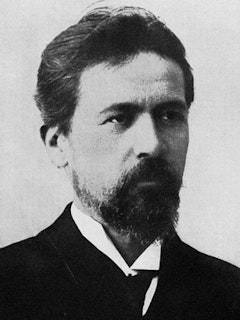
And then I finished to as much applause as I’d ever gotten. A co-worker had tears in his eyes. My father beamed with pride. People were smiling. Someone else wiped her eyes. I just stood there. The entire second half of the piece I was convinced of my failure; I had even eliminated a whole scene so as to end the excerpt quicker. But afterwards I learned it hadn’t mattered. No one could tell the difference; no one could sense my utter disconnection from the piece. They were the audience, they wanted to be carried along by the plot, the characters, and the “vast tapestry” that makes up any fiction, be it mine, or Pinter’s, or George W. Bush’s. A story was what the audience had signed up for, and that day listening to Pinter, I’d decided not to trust stories any more.
As Thomas Mann, another Nobel Prize winner, once wrote: “A writer is someone for whom writing is more difficult than it is for other people.”
I don’t assume there’s any hidden truth to that anymore; I know exactly what he meant.
END
Contributor
Joseph RiippiJOSEPH RIIPPI is the author of the novel Do Something! Do Something! Do Something! (Ampersand Books, 2009). New writing can or will be found in Ep;phany, The Bitter Oleander, KNOCK, La Petite Zine, PANK, and others. He lives in New York, where he is finishing his MFA.

